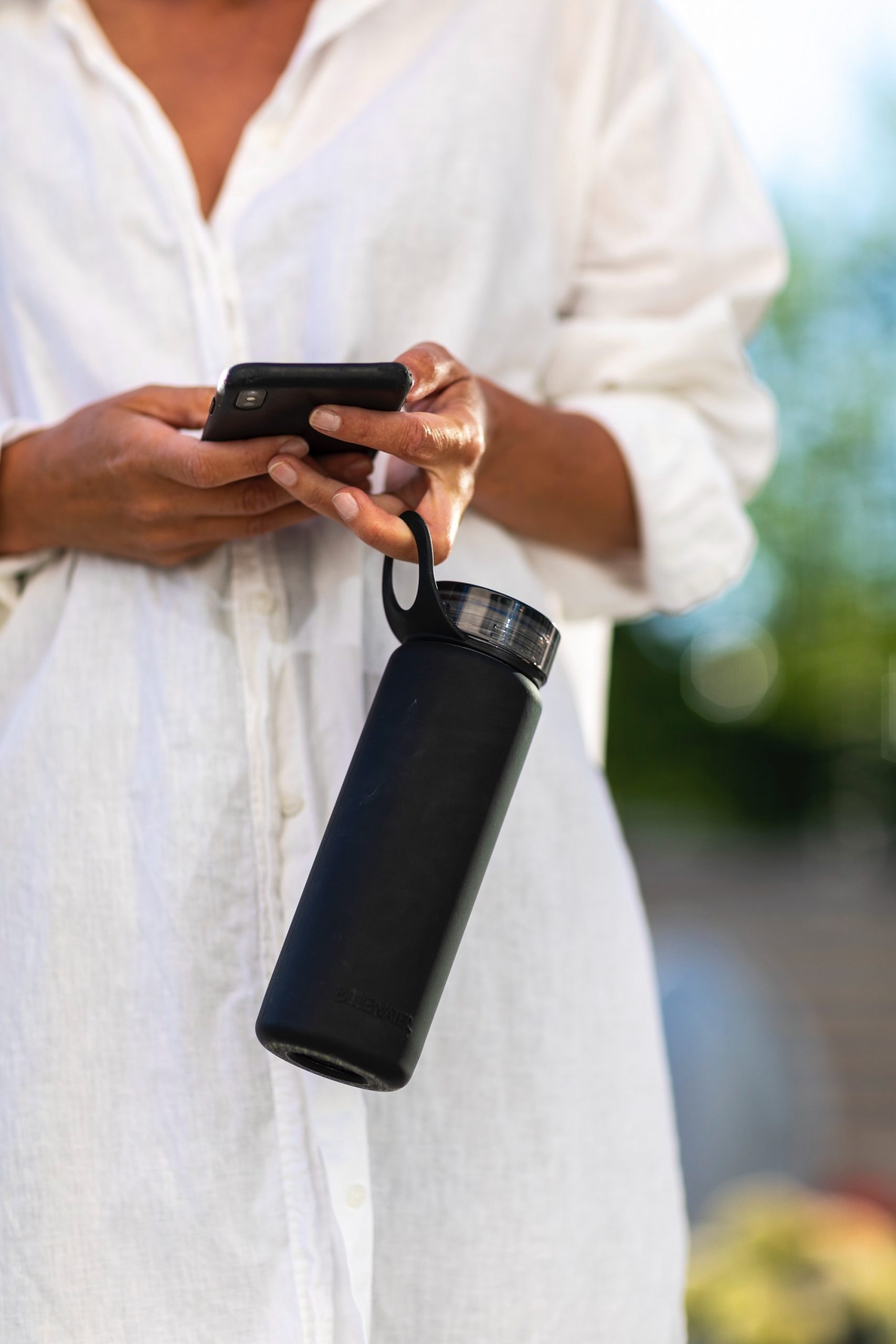Water is an essential part of our health and wellbeing, but many of us struggle to drink as much water as we may like. With the warmer months fast approaching, it’s going to become even more important to drink enough water to balance any fluid losses through extra sweat. But water can be boring and our busy lives make it easier and easier to forget to drink. Today we answer the question: How much water should you drink every day? Plus our best tips for hitting that goal!
Why is drinking water so important?
Water makes up 50-80% of our body weight and every single cell we have requires it to function. It also plays a large role in digestion and the absorption and transport of nutrients. Water regulates body temperature and eliminates waste through urination. The intake of added fluoride through tap water also helps to protect us from dental cavities.
And if that isn’t enough, inadequate water consumption has been associated with the impairment of physiological responses, increased risk of kidney stones, cancers and decreased physical and mental performance.
How much water should you drink every day?
The recommended daily intake of water varies depending on age, gender and levels of physical activity.
Adults require 2-3 liters of fluid per day as a rule of thumb, or 35-45ml/kg of body weight. Children typically require 4-6 cups per day, depending on their age, and infants need 3 cups every day. Speaking of infants, pregnant and breastfeeding women have increased water requirements due to the needs of her baby.
Water requirements for elite athletes and active individuals are also higher due to increased losses from sweat. Itis recommended that active individuals drink water throughout exercise to replace lost fluid (ideally approximately 150ml every 15 minutes). Understanding your sweat rate and knowing how much you should be drinking based on this will help you a lot. If you aren’t sure how to measure this, book an appointment with our accredited sports dietitian.
Signs you’re not drinking enough water
One of the easiest ways to keep an eye on your hydration is to take a peek inside the toilet bowl! Your urine should be a pale yellow to almost clear colour. A lack of water can cause it to become darker in colour, have a strong odour and be cloudy. These are definite signs you need to up your sips. Other signs you’re not drinking enough water can include headaches, fatigue, dry skin, constipation, dry or cotton mouth and muscle cramps.
Symptoms of severe dehydration also include dizziness, rapid heartbeat and breathing, sunken eyes and fainting. Severe dehydration requires immediate medical attention.
6 tips for increasing water consumption
- Make a habit of drinking 1-2 glasses of water with each meal.
- Carry a water bottle with you on the go to remind you to drink throughout the day.
- Fill up a 1 L water bottle and label it with the hours of the day. This will help you to drink a specific amount by each hour.
- If you take medication, take it with a glass of water rather than just a sip or two.
- You don’t have to rely on just plain water. Other fluids such as tea, coffee, and milk all count as fluid intake – but water should be the main drink of choice. Try to limit fluid intake from soft drinks, cordial, vitamin waters, juices, and alcohol.
- Add sliced lemon, cucumber and fresh fruit to your water for extra flavour.
Can you drink too much water?
While getting enough water is very important for your overall health, it is possible to consume too much. Drinking excessive amounts of water can lead to hyponatremia. Hyponatremia is a condition in which sodium levels become dangerously low due to it being diluted in the bloodstream after taking in too much water.
Sodium plays a key role in our bodies, helping to maintain normal blood pressure and regulating fluid balance. This is why it’s important that we don’t consume excessive amounts of water. But if you follow our recommended daily intake and drink when you’re thirsty, you should have nothing to worry about!

